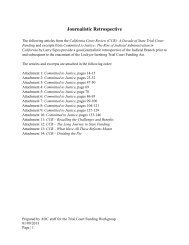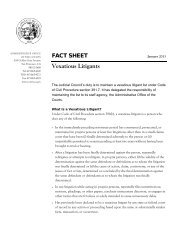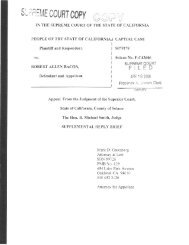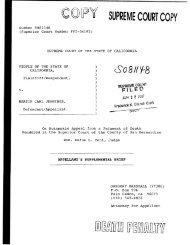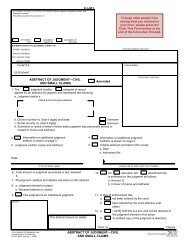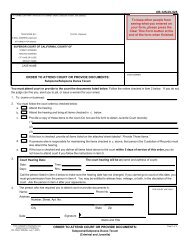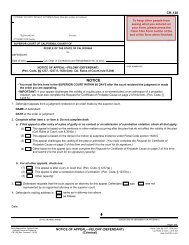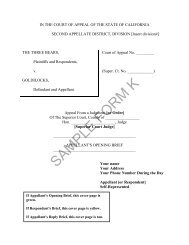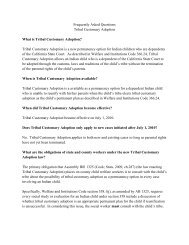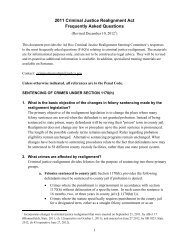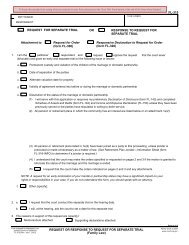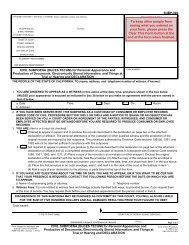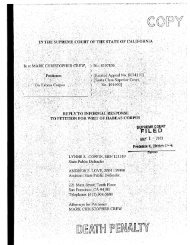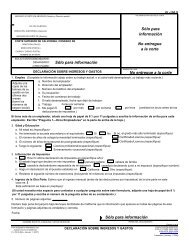Appellant, William Satele, Reply Brief - California Courts - State of ...
Appellant, William Satele, Reply Brief - California Courts - State of ...
Appellant, William Satele, Reply Brief - California Courts - State of ...
You also want an ePaper? Increase the reach of your titles
YUMPU automatically turns print PDFs into web optimized ePapers that Google loves.
may not cross-examine a witness upon collateral matters for the purpose <strong>of</strong> eliciting<br />
something to be contradicted. [Citations] This is especially so where the matter the<br />
party seeks to elicit would be inadmissible were it not for the fortuitous circumstance<br />
that the witness lied in response to the party's questions." (People v. Lavergne<br />
(1971) 4 Cal.3d 735, 744.)<br />
This is precisely what occurred in this case. Kelly was called by the defense<br />
to present testimony as to several facts, including: the fact that appellant personally<br />
had no racist tendencies; the fact that all the gang members had access to the rifle<br />
used in the murders; and the fact that prosecution witness Joshua Contreras was<br />
frequently under the influence <strong>of</strong> methamphetamine. (See AOB at p. 155.) On<br />
cross-examination, the prosecution asked Kelly if he had <strong>of</strong>fered someone money<br />
to testify that the West Side Wilmas get along with African-Americans. Kelly<br />
denied that he had done so. (lORT 2413.) Thereafter, the prosecution called Glen<br />
Phillips to testify that he heard Kelly <strong>of</strong>fer Warren Battle, a African-American<br />
employee <strong>of</strong> Phillips, $100 to testify that ''we'' get along with African-Americans.<br />
(13RT 2978-2979.)<br />
Obviously, the only reason why the prosecutor originally asked Kelly about<br />
this attempt to purchase testimony was to get in the testimony <strong>of</strong> Phillips after<br />
Kelly denied the fact. Equally obvious is the fact that had Kelly not denied this<br />
fact, Phillips' testimony on this point would not have been admissible on its own;<br />
it became admissible solely because <strong>of</strong> Kelly's denial. Because Kelly's <strong>of</strong>fer to<br />
Phillips was not an issue in this case, it is a classic collateral issue. Therefore, this is<br />
exactly within the rule explained in People v. Lavergne.<br />
Respondent also dismisses the likelihood <strong>of</strong> potential confusion caused by<br />
this evidence in a conclusory manner. (RB at p. 127.) However, as explained in<br />
<strong>Appellant</strong>'s Opening <strong>Brief</strong> (AOB at pp. 161-162), there actually was demonstrable<br />
confusion when the prosecutor misstated the purpose for which this evidence was<br />
<strong>of</strong>fered, arguing that it was <strong>of</strong>fered to prove Kelly tried to bribe Warren Battle to<br />
testify falsely, when, in fact, the evidence was originally <strong>of</strong>fered not for the truth <strong>of</strong><br />
85



